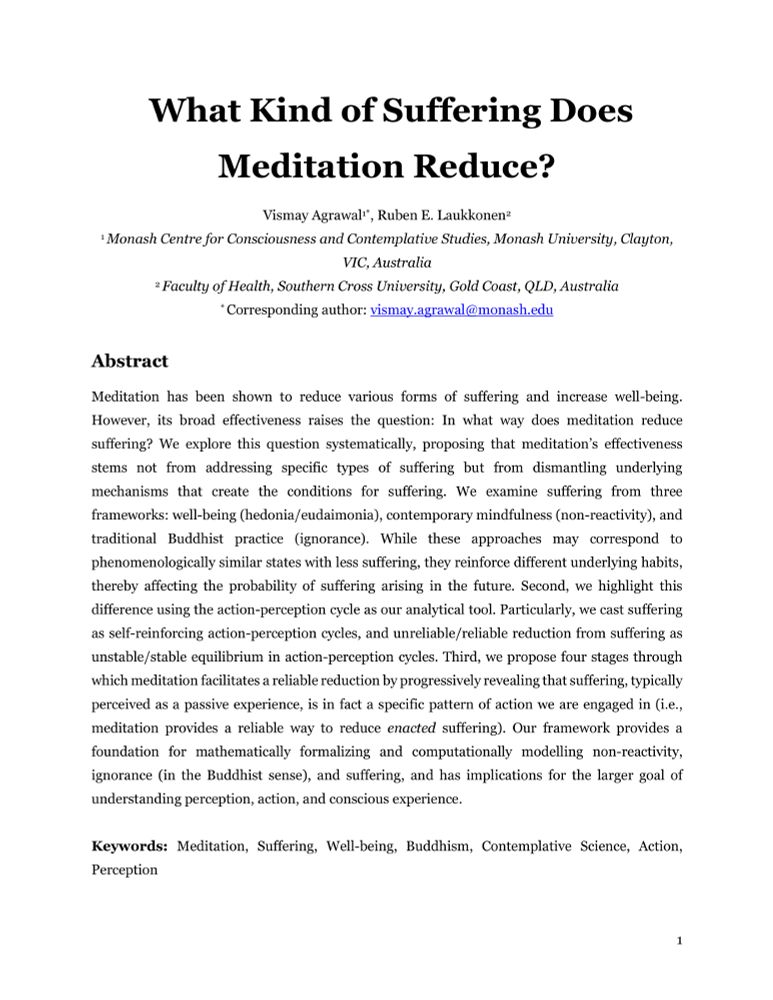
Thank you to Shamil Chandaria, Karl Friston, and others. The paper is open access. Four tough reviewers actually really helped, so please save the published version:
sciencedirect.com/science/arti...
@rubenlaukkonen.bsky.social
neuroai x zen fool https://rubenlaukkonen.com/

Thank you to Shamil Chandaria, Karl Friston, and others. The paper is open access. Four tough reviewers actually really helped, so please save the published version:
sciencedirect.com/science/arti...

this is what we call hyper-modeling. Basically you make global precision the latent variable to be explained, just like the causes of sensory data, approximating recursive modeling of the world model
08.08.2025 09:20 — 👍 0 🔁 0 💬 1 📌 0to oversimplify, whenever we are conscious we are aware of our attentional sets. We are aware of the outcomes of the selection process. these "attentional flows" are our stream of consciousness. So AI needs a way to generate (deep) models of it's attention/confidence; internally and recursively
08.08.2025 09:20 — 👍 0 🔁 0 💬 1 📌 0unless it can reflect upon and compress its own compressions, it cannot make meaning out of it nor find the right gradients for truth seeking or goodness. But I do think we can make AI conscious-like (if not conscious) by instantiating epistemic depth. And it may not be that complicated...
08.08.2025 09:20 — 👍 0 🔁 0 💬 1 📌 0this inner epistemic agency is precisely what current AI systems lack, and why they can't solve important problems without close human guidance—because the very sense of "quality" is missing
08.08.2025 09:20 — 👍 0 🔁 0 💬 1 📌 0
like hearing our voice when we speak, we build a world model and share it with ourselves, recursively rediscovering what, who, where, when, and how
08.08.2025 09:20 — 👍 0 🔁 0 💬 1 📌 0all rest on the reflexive capacity to reveal your own world to yourself, moment-by-moment. And the more luminous the epistemic depth, the more meaning, mindfulness, flexibility, and consciousness we encounter
08.08.2025 09:20 — 👍 0 🔁 0 💬 1 📌 0but the point is not to replace all these notions with a new one, but to say that there is likely a shared mechanism for these mysteries: awareness, flexible intelligence, meaning, and mindfulness
08.08.2025 09:20 — 👍 0 🔁 0 💬 1 📌 0epistemic depth is the difference between a philosophical zombie and what we are, at our better moments—it's the basic fuel of mindful awareness and the currency of meaning-making
08.08.2025 09:20 — 👍 0 🔁 0 💬 1 📌 0
This recursive reflection, i.e., epistemic depth, is what makes a transparent representation opaque: it's what turns a thought from an automaton to something with intent, meaning, and qualities. Epistemic depth is what takes the shirt on your back and makes it exist, for you, in this moment
08.08.2025 09:20 — 👍 0 🔁 0 💬 1 📌 0but it all rests on this capacity to take a slice of mind and make it luminous—the sparks of consciousness as we emerge from general anaesthesia are sparks of mind reflecting upon itself
08.08.2025 09:20 — 👍 0 🔁 0 💬 1 📌 0if you have the toolkit, you can even empty your own reality model and inhabit minimal states, or expand it to the outer-reaches of psychedelic state-space
08.08.2025 09:20 — 👍 0 🔁 0 💬 1 📌 0conscious beings navigate, fabricate, communicate, and refine their own minds as if it were an actual, stable, permanent world. this capacity to take our mind—or a slice of it—and make it known is extraordinary. Something current AI systems lack
08.08.2025 09:20 — 👍 0 🔁 0 💬 1 📌 0the functionally cool thing about being conscious is having agency over your own world model: organisms not only construct world models, they intentionally explore them. They are able to know what they know; and what they do not know
08.08.2025 09:20 — 👍 0 🔁 0 💬 1 📌 0
Now published!
Possibly the first ToC predicated on exotic states in a mainstream journal. Yet computationally tight enough to inform AI. Here's a compression ⤵️

Does meditation just happen to address multiple types of suffering, or does its broad effectiveness hint at something deeper about the mechanisms of suffering or well-being itself?
We address this in our new preprint!
@rubenlaukkonen.bsky.social
osf.io/preprints/ps...